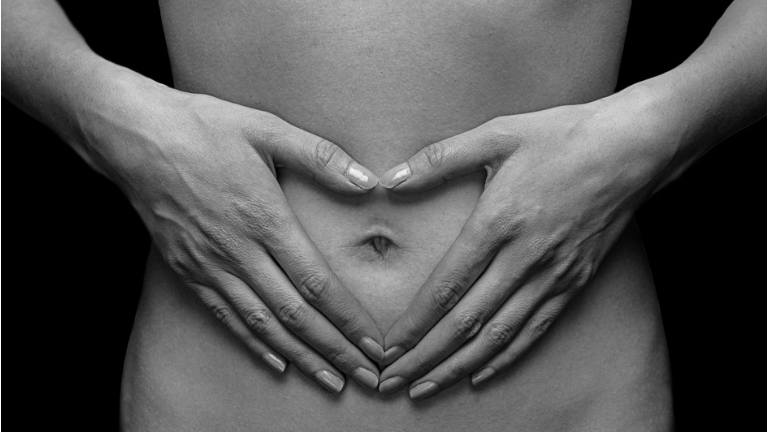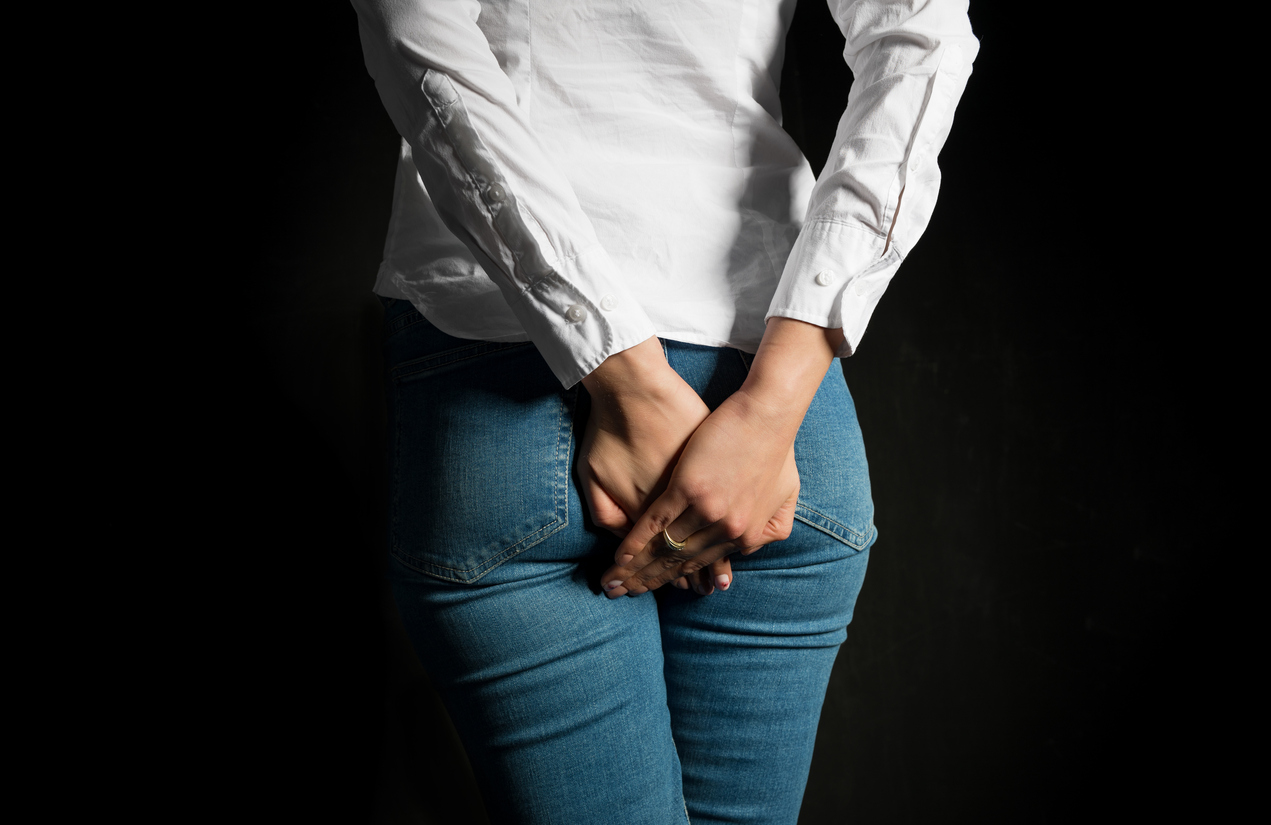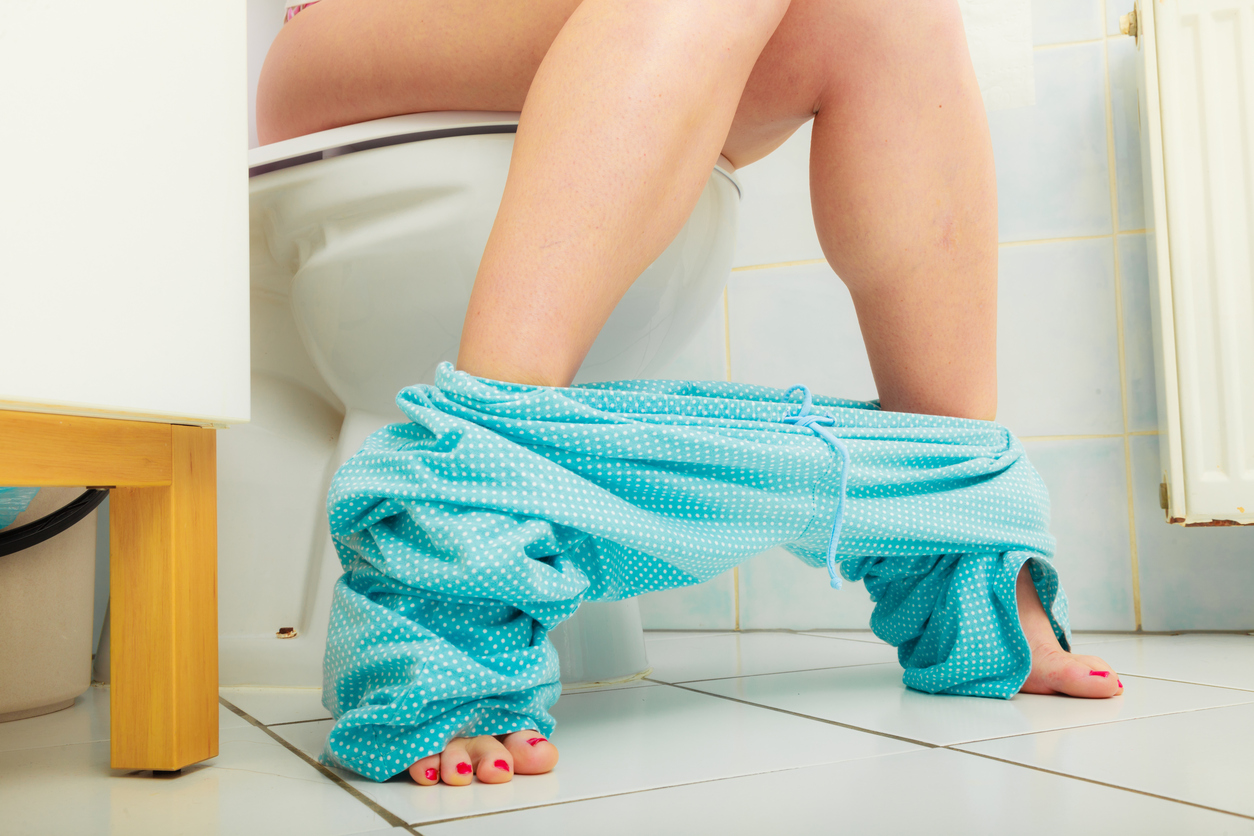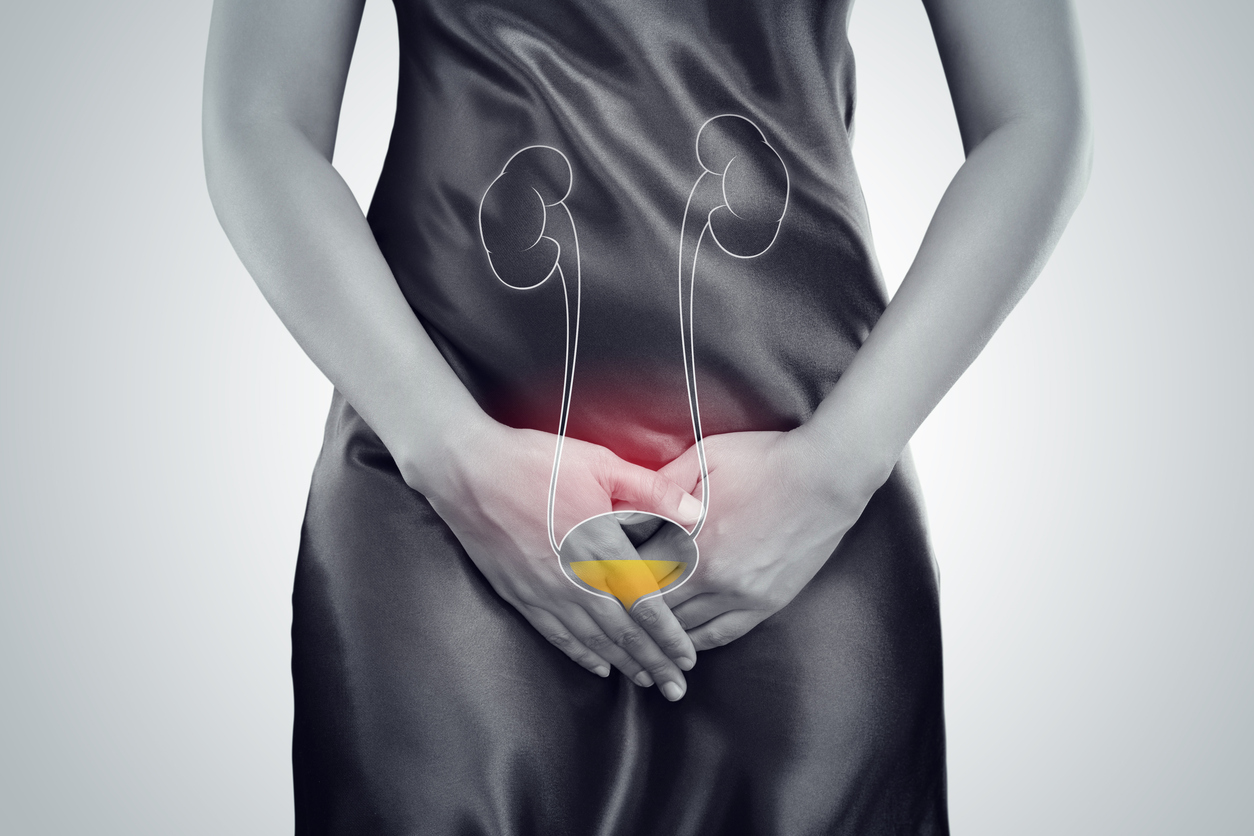Bloated stomach? Gassy after eating? These are key signs your gut bacteria needs a helping hand – Sharon Walker investigates
Probiotics are the buzz word in the wellness world right now. They’re the friendly bacteria beavering away in our intestines, and they impact everything from our mood to our weight.
In fact, scientists believe that every adult has over 100 trillion microbes, weighing a total of two kilos, and that the gut micobiome (the collective name for all the microbes in the digestive tract) is as important as our genes when it comes to our health.
So it’s no surprise that probiotic supplements designed to restore the gut eco system are big business. Every year, in the UK, we spend about three quarters of a billion pounds on probiotic products. But last month new research published by the New Scientist suggested that probiotics were ‘mostly useless and could actually hurt you’.
MORE: What are probiotics and how can you find one that works
The study by the Weizmann Institute of Science in Israel found that the probiotic tested failed to colonise the gut of a number of the study’s participants.
In a second study the probiotic delayed the time it took the gut microbiota to return to normal, by up to six months, in people who had first taken antibiotics. The exact opposite of what you would expect or hope for.
Other much larger studies have demonstrated the benefits of taking probiotics
The study’s lead scientist Eran Elinav, concluded that probiotic formulas should be tailored to the individual. Other experts, however, consider the result a red herring, especially in the context of the number of studies showing that probiotics do work.
‘For a start, both studies were extremely small in size, with a sample number of only 29 and 46 respectively,’ says Nutri Advanced nutritionist Katherine Pardo. ‘Other much larger studies with thousands of participants have previously demonstrated the benefits of taking probiotics.’
The strain tested is another issue. ‘It’s not clear which brand was used, or whether they tested the strains that have haven’t been extensively researched,’ says Pardo noting that the stability and strength of the probiotics were not revealed in the Weizmann Institute study.
So in the right circumstances are probiotics still relevant? Countless studies show that poor diet, antibiotics or stress can throw out the delicate balance of microbes in our gut, leading to health problems, from poor immune function to issues with digestion and insulin sensitivity.
One way your gut bacteria impacts your day-to-day wellbeing is through, well, your gut health; if you’re suffering from the below tell-tale signs, a well-researched supplement should help, says Pardo.
Just be sure to check the strain, before investing. To help you make the right choice we’ve investigated which strains work best for different conditions.
So what are the key signs you need a probiotic?
Sign you need a probiotic #1: You’re bloated
Bloating is a clear indication that your gut bacteria in your intestine are out of balance, with the bad bacteria outnumbering the good, says Pardo. Even one course of antibiotics can kill off the good bacteria in your gut and cause unfriendly micro-organisms to proliferate.
Of all the gut health issues we discovered through the recent Healthista survey bloating was by far the most common problem with a tight bellied 42.7 per cent suffering from uncomfortable bloated stomach.
Plenty of us are putting up with distended bellies on an almost daily basis, according to the survey, with 15% of respondents experiencing bloating after every meal and often this goes hand-in-hand with other symptoms. ‘Often the bloating is accompanied by pain and flatulence and noisy digestion,’ confirms Pardo.
The good news is that the right probiotic can help and you could see results pretty immediately.
‘A probiotic starts working straight away,’ confirms Pardo. ‘The bloating is caused by excessive gas from fermentation when the bad bacteria feed on carbohydrates in your gut.
‘Bacteria in the gut are fermenting and producing gases all the time, but when the beneficial and pathogenic bacteria are out of balance – say more than 85% good/15% bad – then excessive, often foul-smelling, gas may be produced’.
When the bacteria are back in balance normal levels of fermentation return, says Pardo. How quickly you’ll feel the benefits will depend on the severity of the imbalance.
‘If you only have a slight imbalance you can see a difference in a week. For more serious issues it may take longer for the good bacteria to build up and ‘crowd out’ the bad bacteria.’ When you reach the optimum balance of bacteria the sugars stop fermenting and producing gas.
Just make sure you choose a well-researched strain of probiotic, with a high enough potency to be effective and one with a guaranteed shelf life.
One well-researched strain shown to help IBS symptoms including abdominal pain is the Lactobacillus Acidophilus NCFM. A 2016 study published in the World Journal of Gastroenterology a 12-week study of 340 adults found that this probiotic significantly reduced their abdominal pain compared with a placebo.
Similarly, a 2014 study found Lactobacillus acidophilus NCFM pain-reducing effect was similar to that of morphine.
A varied diet full of different types of fibre, including both soluble (such as oats, beans, rice, apples, strawberries, potatoes etc) and insoluble fibres (such as wholegrains, cereals and seeds), can also help tackle bloating.
If the symptoms are severe, however, you may need to do a ‘clearance’ first. This may require an antimicrobial herbal product, or an antibiotic an anti-biotic, prescribed by your GP, to wipe out all the bad bacteria, followed by a FODMAP – fermentable oligosaccharides, disaccharides, monosaccharides, and polyols — exclusion diet. FODMAPs are gas-producing compounds found in many foods. Then you’d add a good probiotic to replenish good bacteria, Pardo suggests.
Try: Lactobacillus Acidophilus NCFM is one of the best researched probiotic strains in the world, backed by over 60 scientific publications.
Try: Nutri Advanced Ultra Probioplex Plus Capsules, £18.00 for 30 capsules.
Sign you need a probiotic #2: You’re gassy
A certain amount of gas is normal – it builds up in your digestive tract as a by-product of digestion and there’s also the fact that we swallow air all day long.
The average person has about 0.5 to 1.5 litres of gas hanging out in their digestive track per day and as a result most of us ‘pop’ several times a day – up to 20 times is in the ‘normal range’ – but excess flatulence is definitely a sign that your gut bacteria are out of balance and that the ‘bad guys’ are winning in the battle.
‘The air is coming from the fermentation process,’ confirms Healthista’s Nutritional Director Rick Hay. ‘A certain amount is unavoidable but if you’re jet-propelling yourself down the street, that’s not right. It could be a sign of bacterial overgrowth or food intolerances, where you can’t break down certain foods, such as the sugar in dairy products (lactose) or proteins such as gluten.’
If you’ve noticed that gas is causing problems – or that it smells particularly bad – you may want to try a probiotic.
Most probiotics will help reduce gas by restoring the balance of bacteria in your gut, which brings the fermentation back to normal levels, says Pardo.
Try: Nutri Advanced Ultra Probioplex Plus Capsules, £18.00 for 30 capsules.
Sign you need a probiotic #3: You have diarrhoea
Short term diarrhoea is often caused by a virus (gastroenteritis) and can also be caused by food poisoning, but if the issue is ongoing and not linked to a particular illness that’s another sign your gut bacteria are off kilter.
‘A lot of people have loose stools and live with it,’ says Pardo. ‘But loose stools are not normal. Diarrhoea is a sign that your body is trying to get rid of something, which can be another sign your gut bacteria are out of balance,’ says Pardo.
If you’re suffering from diarrhoea predominant IBS, the probiotic strain S. boulardii may be the most effective strain, according to a double-blind, placebo-controlled study conducted on 34 IBS patients with predominant episodes of diarrhoea in the French journal of Med Chir Dig . Treatment with S. boulardii was found to decrease the daily number of stools and improved their consistency after one month of treatment. However, S. boulardii did not improve other gut symptoms.
Try: UltraProbioplex Duo, £28.00, 30 Capsules which includes S. boulardii.
Sign you need a probiotic #4: You’re constipated
If you’ve noticed you’re not as regular as you should be you may want to try a probiotic containing the B. lactis strain. That’s the probiotics that’s been shown to be most effective at dealing with constipation, according to research at Kings College London that looked at the results of 12 different studies.
Constipation affects about 14% of UK adults and 10% of our readers who took the Gut Health survey. ‘It is even more common than diarrhoea,’ says Pardo. ‘Though it’s not unusual for people to fluctuate between diarrhoea and constipation, when they’re suffering from IBS.’
If you’re pushing out tiny pellets (level one on the Bristol Stool Chart – yes that is a thing – there are seven levels with 3-4 being the optimum), straining when going to the loo, or having less than one bowel movement a day, your body is reabsorbing too much moisture, which can happen when your bacteria are off balance, says Pardo.
Constipation affects about 14% of UK adults. It is even more common than diarrhoea
Another reason you might be constipated is lack of fibre, which you need to feed the good bacteria. ‘Soluble fibre is best,’ says Pardo. Think oats, apples, fruit and vegetables. You also need to check your fluid intake. Pardo recommends aiming for 6-8 glasses a day and keeping tabs by pouring from a big bottle.
Fortunately there’s clear evidence that probiotics help with constipation. Researchers at Kings College London looked at the results from 12 different well-controlled studies, which randomly assigned people to either a probiotic or placebo group. The results showed that probiotics may improve the time it takes for food to move through the gut, stool frequency and stool consistency. The B. lactis-07 strain was shown to be most effective.
Try: Ultra Probioplex Plus, £18.00, 30 Capsules
Sign you need a probiotic #5: Recurrent infections down there
If you’re suffering from recurrent yeast infections that’s a clear sign you’d benefit from a probiotic, says Pardo. ‘Yeast can flourish when you don’t have a good balance of bacteria as the candida albicans yeast is particularly opportunistic in both the gut and vagina.’
But it’s not just thrush that signals an imbalance. Recurrent urinary tract infections (UTIs) are also a sign that you could benefit from a probiotic. UTIs are common in women with decreases in vaginal Lactobacilli, which are the predominant vaginal flora which suppress the bad bacteria, says Pardo. While several studies have shown that L. acidophilus NCFM probiotic strain can help with the prevention of UTIs in women.
A 2010 study published in FEMS Microbiology Letters found that S boulardii also helps to reduce candida and inflammation.
Try: Ultra Probioplex Plus, £18.00, 30 Capsules, which contains Lactobacillus acidophilus NCFM, the predominant vaginal flora. Or Ultra Probioplex Duo, £28.00, 30 Capsules, which is good for both thrush and UTIs.
Related Healthista Content
Got low energy? Here’s why a probiotic could help
What is the best probiotic pill? If you’re looking for one, read this first
A cure for IBS? This probitoic pill is scientifically proven to help
Fermenting foods at home: A step by step guide
Like this article? Sign up to our newsletter to get more articles like this delivered straight to your inbox.

























































